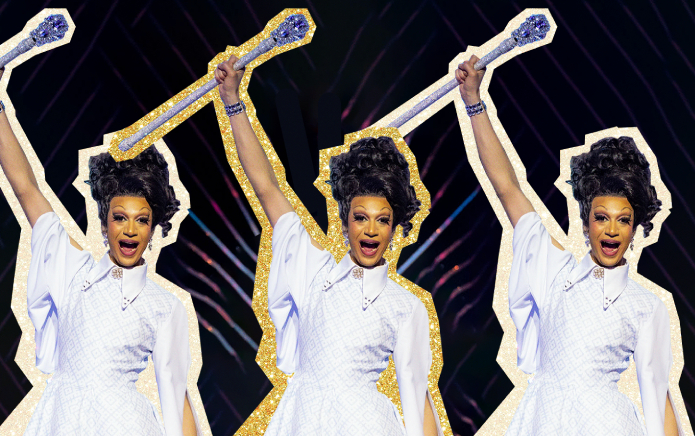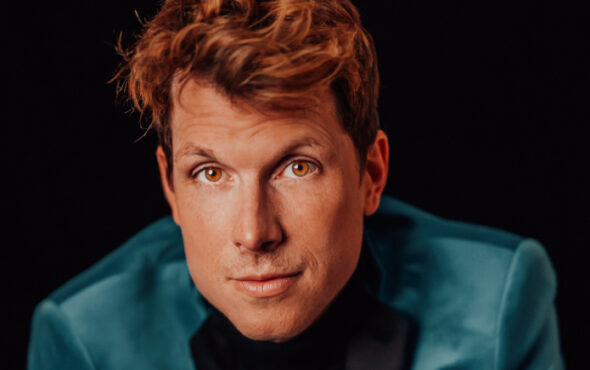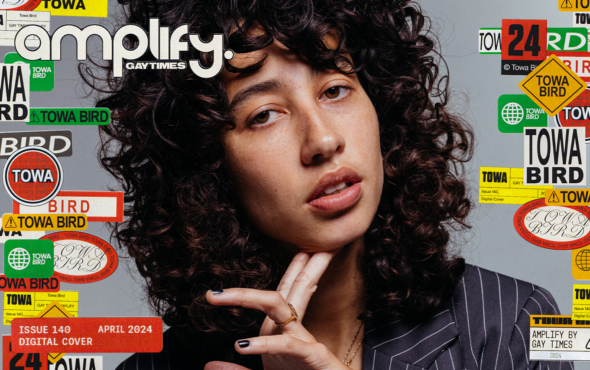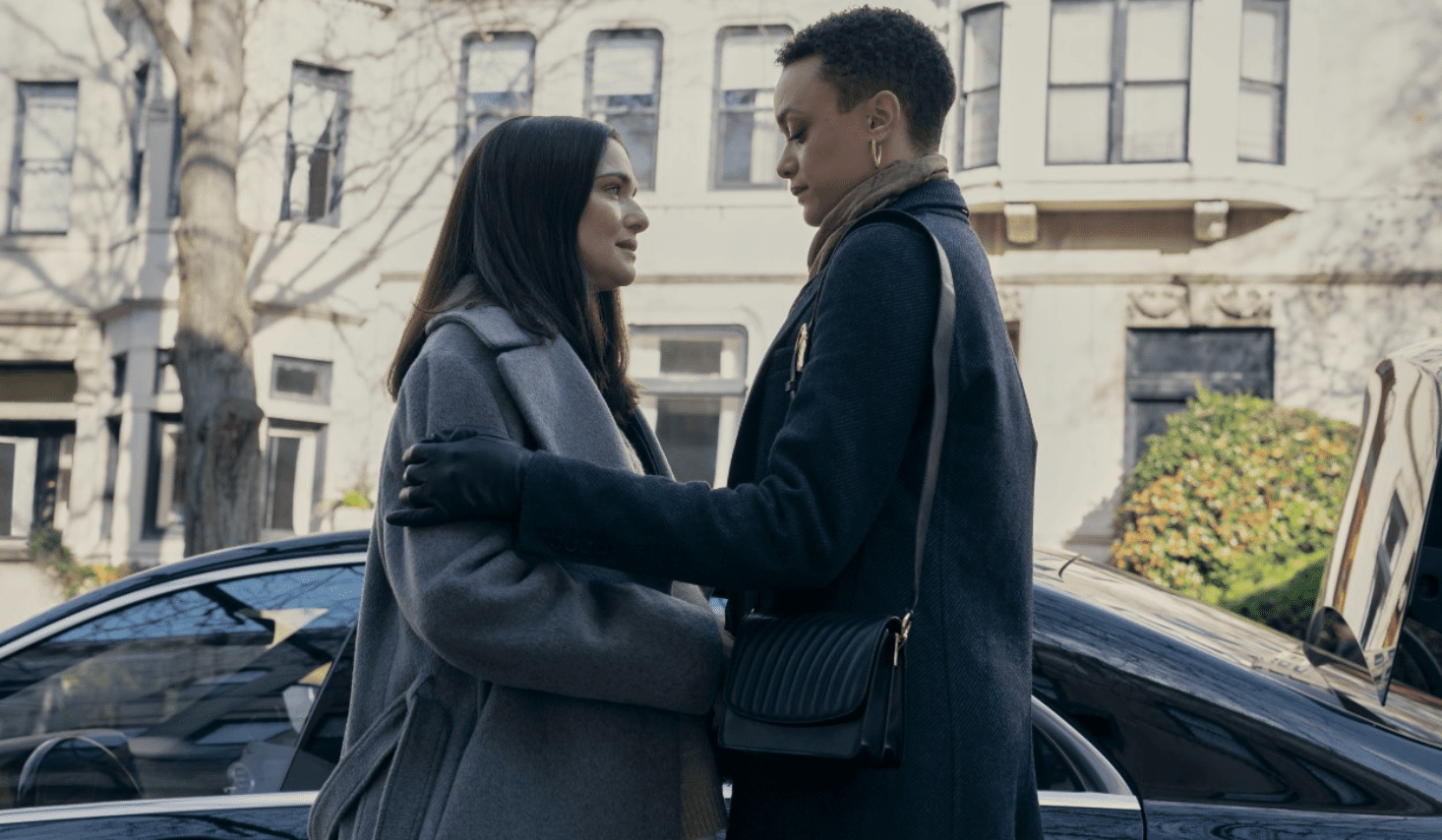
You might recognise the title of this new standout series. Well, that’s because it’s a sex-swapped reinvention of David Croenberg’s 1988 cult classic film of the same name. Now, this isn’t another one of those reworked premises that doesn’t quite land. In fact, it’s entirely the opposite. Amazon Prime Video’s new gory series emulates the gripping body horror you would suspect gets tangled up in a sinister, heightened plot that will effortlessly lead you onto the next episode.
Starring Rachel Weisz as Elliot and Beverly Mantle and Britne Oldford as Genevieve Cotard, Dead Ringers holds little back. From fleshy, gruesome scenes in a gynaecology clinic to heartbreaking character arcs on life, loss and addiction, psychothriller Dead Ringers puts you through its paces.
So, with this must-watch series out now, GAY TIMES sat down with cast members Britne Oldford, Rachel Weisz and showrunner Alice Birch to learn more about the powerful, striking show.
How did each of the actors bring their own creative imprint to the series?
Oldford: I thought that the character of Claire was such a powerful character in such a tour de force performance that I could not even begin to try and match because it was it’s own its own specific thing. So, for Genevieve, because she has a softer character, it was about making sure that the strength was there.
Weiz: Alice’s writing was so incredible. She and I spoke at length and we grew some of the broad brushstrokes of both Beverly and Elliott. Then, Alice went away and wrote [the script] so I had their dialogue on the page. It was a long process, which Alice can speak to, but she and I used our imaginations together beforehand.
Birch: We had a really, really long conversation and Rachel was in the writer’s room as well. There are so many things [to consider] and when that conversation goes on for such a long, we both started talking about ‘have you seen that film’ or ‘what about that painting? What about that photographer? What about that character? What about if somebody does this and the show?’ It was being able to write for an actor from the beginning which makes this process slightly different to something I had done before
Dead Ringers operates in a world recognisable to women. From the presentation of miscarriages to corrupt systems of power. As cast members, how did you lean into that sinister familiarity?
Weiz: As an actor, being given the opportunity to be part of a project that does celebrate the spectrum of being a woman or a really complex person. It was a pleasure, really and everything was so complex and so just delicious.
Oldford: There was no improvisation we weren’t making it up on the day. It was all they were in an incredibly crafted script. So, from the point where we got the script, we just used our imaginations and the other writer’s work. And in terms of the recognisable world of hospitals, that was something that was a lot about the beginning of that episode and one should be in a world that’s very recognisable where real tragedies and real joys happen.
It was grounded so that hopefully we believe in the twin’s dreams which become quite more and more operatic as the show goes on. So, the intention was for it to be a world that is holding up a mirror to the real world leaving out so many stories. Alice talked about all the patients that we had to leave out. There were many patients that, like Camila, have names, and they weren’t they became real to us.
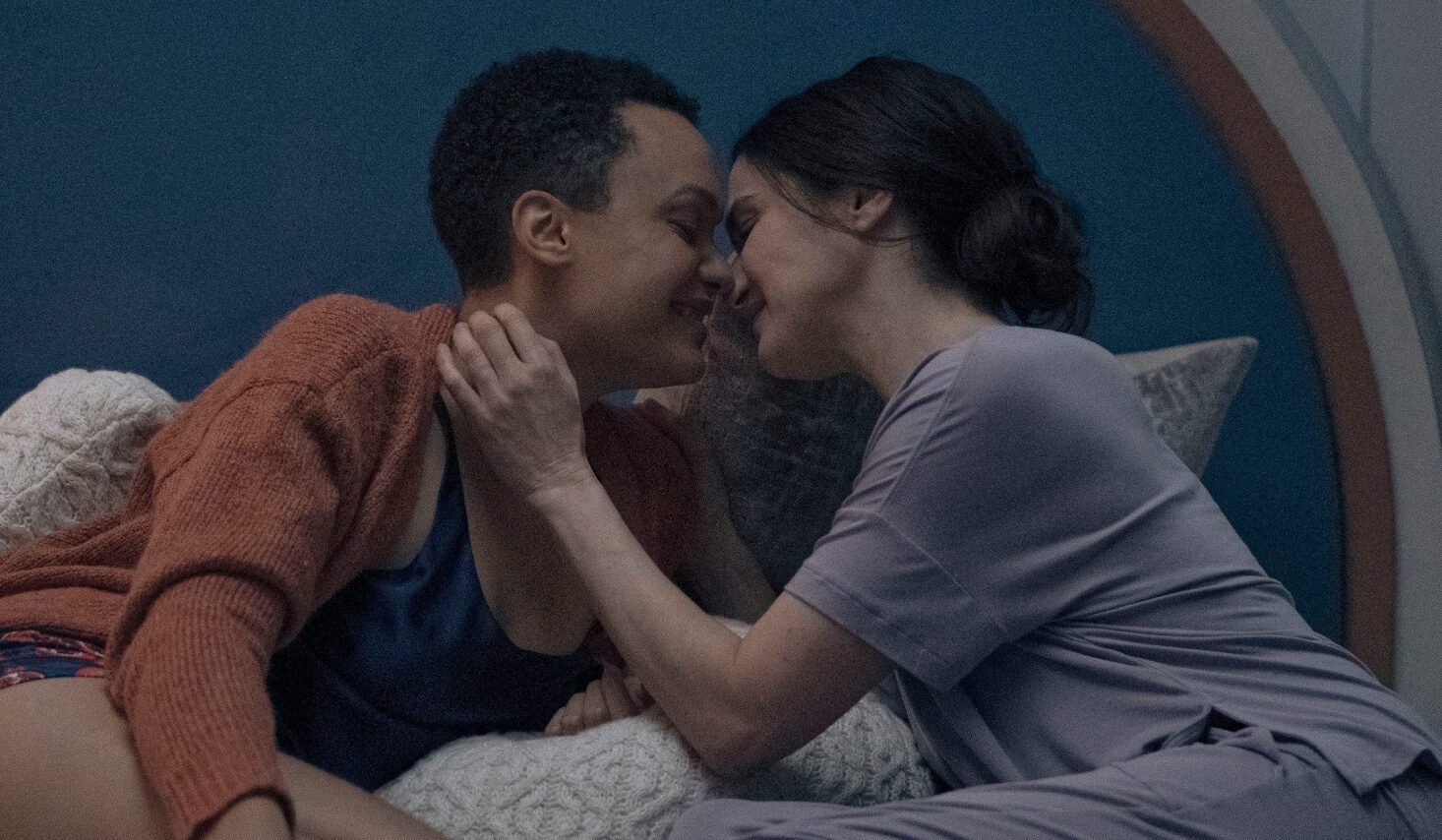
Why do you think people gravitate to these dark creative projects?
Oldford: I’m also someone who gravitates towards them because they’re giving the audience an insight into reality. A lot of the time, in the past, stories about women have been a bit sort of polite. I think a lot of people are a bit sick of that and want more depth and more reality. It’s exciting and interesting and I think people learn a lot about the complexity of the queer experience and of the women’s experience. It’s so based in reality, as we all know, and it’s, it’s so wonderful to see that being celebrated and devoured.
Shows often dance around having out and visible LGBTQ+ romance and relationships. In Dead Ringers it’s not brushed under the carpet but, rather, recognisable there. Why was it important to have that chemistry so visible?
Weiz: Hopefully, the chemistry is recognised or else we’re not doing our jobs very well! I do think it’s so beautiful to just have a story that feels so grounded…. and so mean. I guess the beginning is a bit salacious, isn’t it? Because it’s been naughty in the way that happens. But, it feels very, very normal and real and organic.
Rachel, you’ve established yourself as a bit of a queer icon and, Brittany, you occupy a very important space in this series. How did each of you connect with the value of queer storytelling in Dead Ringers?
Oldford: I guess I can speak for both of us when or maybe I should just speak for myself. I think it’s so wonderful. I get very emotional when I talk about this. It’s so beautiful that we are at a point, in media and entertainment, where there have been so many stories that have been celebrated, although ours is quite heightened, the reality of a human experience that just happens to be different from some sort of traditional norm.
It’s so important for people to feel supported and feel uplifted by being able to see something that isn’t a stereotype that isn’t overly salacious or some sort of fantastical thing. It just it’s so based in reality and that’s why it’s very important to me. I’m so honoured to be part of telling these stories to hopefully make people or help people feel more comfortable and safe and seen.
Dead Ringers is now available to stream in the UK on Amazon Prime Video.
